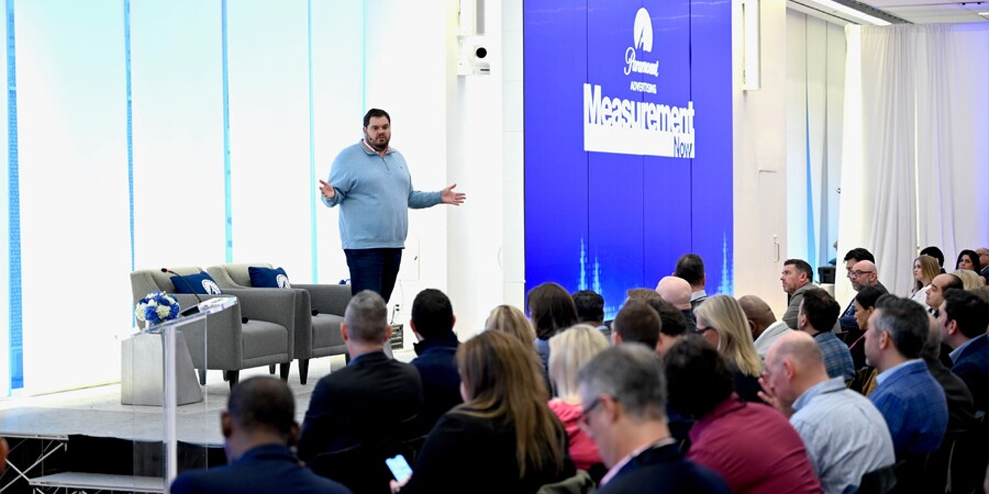On Wednesday, American TV viewers, including fans watching the NBA Playoffs, caught the launch of a major national advertising campaign from Facebook that will appear online, in movie theaters, public transit, billboards, and TV through the summer.
“We came here for the friends,” the TV voiceover begins, emphasizing that Facebook is about connecting and making people feel less alone. “But then something happened. We had to deal with spam, clickbait, fake news, and data misuse. That’s going to change. From now on, Facebook will do more to keep you safe and protect your privacy.”
The 60-second spot may be a bid to win back consumer trust, but it’s not an apology. The ad frames issues like “fake news” and “data misuse” as assaults that somehow “happened,” but doesn’t address Facebook’s responsibility. Then, Facebook reassures users that it will do better job of protecting user privacy “from now on.”
Facebook essentially has been on an apology tour since the company was launched 14 years ago, which undermines pledges to do better. Earlier this month, Facebook CEO Mark Zuckerberg testified before Congress about reports that Cambridge Analytica had obtained personal data on up to 87 million unwitting Facebook users, in violation of Facebook’s rules. “It was my mistake and I’m sorry. I started Facebook, I run it, and I’m responsible for what happens here,” Zuckerberg told members of the House and Senate. Last fall, a Facebook executive testified about Russian efforts to use the platform to influence the 2016 presidential election.
The US ad campaign was developed by Facebook’s in-house creative team and tested in Chicago in March. The outdoor ads on bus stops feature slogans like “Spam is not your friends,” “False news is not your friends,” “Clickbait is not your friends,” in a sparse, unsophisticated font.
Facebook declined to say how much it is spending on the US campaign, only that it will ramp up in top markets and aim to drive awareness to as many people as possible. Facebook has advertised on TV before, to promote its Facebook Live video feature in 2016 and a bizarre 2014 TV spot that compared Facebook to chairs.
“As you heard from Mark in his congressional testimony, we are taking a broader view of our responsibilities,” says spokesperson Lisa Stratton. “We hope this campaign will show that we take our responsibility seriously, and are working to improve Facebook for everyone.”

The ad campaign comes just after Facebook altered its news feed, increasing posts from friends and family and decreasing content from brands and publishers. Over the years, Facebook has become an massively influential source of information. In September, the Pew Research Center reported that 45 percent of Americans get their news on Facebook. In January, Zuckerberg revealed that changes to the algorithms decreased the time spent on Facebook by roughly 5 percent in the fourth quarter of 2017, equivalent to 50 million hours a day. During an earnings call on Wednesday, Zuckerberg declined to say whether engagement on the platform continued to drop.
Last week, Facebook launched a separate ad campaign in print in Europe. And, much like political candidates who use the social network to micro-target their message, the EU ads have a different agenda. That campaign, which will run through mid-June on Facebook and in print, informs users of their rights under a new privacy law called the General Data Protection Regulation that takes effect next month.
The ads are cut-and-dry, summarizing provisions of the law. “In line with the law, you will be asked to review how we can use your personal information. You will also be able to access, download, and delete your data at any time,” one says. Facebook struck a more confident note with EU users earlier this year. The ads, which ran in January and February, told users, “You have control of your privacy on Facebook,” and “Respect for your privacy is a priority at Facebook.”
During an interview with WIRED in February, Renate Nikolay, head of cabinet for the justice commissioner of the European Commission, pointed to Facebook’s ads as sign that major Silicon Valley tech companies had stopped lobbying heavily against GDPR since Facebook was “using slogans like the ones that we always use,” she said.
–
This article first appeared in www.wired.com
Seeking to build and grow your brand using the force of consumer insight, strategic foresight, creative disruption and technology prowess? Talk to us at +9714 3867728 or mail: info@groupisd.com or visit www.groupisd.com



